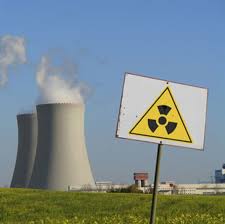Climate Change and the Major Question Doctrine
Just because a regulation involves climate change, that doesn’t make it a major question.
Red State AGs are preparing to go to town with the West Virginia case. They seem to think that everything involving climate change automatically becomes a major question. That’s simply wrong. The doctrine is more nuanced. Recall that the Supreme Court struck down OSHA’s vaccine mandate, essentially on major questions grounds, but the majority found an HHS vaccine mandate for health workers unobjectionable. It all depends on the statutory context, agency practice, and the specific regulation.
In West Virginia v. EPA, Chief Justice Roberts relied on the following factors in striking down the Clean Power Plan:
-
-
- Stark departure from past practice and regulatory norms. The agency’s interpretation of the statute was “not only unprecedented; it also effected a ‘fundamental revision of the statute, changing it from [one sort of] scheme of … regulation’ into an entirely different kind.” Moreover, EPA had relied on an obscure and little-used portion of the statue.
- Breadth of the claimed authority. Under EPA’s view of the statute, Roberts says, “Congress implicitly tasked it, and it alone, with balancing the many vital considerations of national policy implicated in deciding how Americans will get their energy.” Congress needs to say so clearly if that’s what it intends.
- Lack of relevant expertise. EPA lacked expertise on running the electricity system.
- Congressional consideration and rejection. Congress considered and rejected multiple efforts to create a cap-and-trade scheme for carbon.
-
With that in mind, let’s look at the areas of regulation that Republican AGs claim are major questions.
Emissions standard for cars. At least one industry lobbyist has said an EPA plan to phase out gasoline cars would be a major question. Of course, EPA has never proposed doing so. It has, however, imposed increasingly tough fuel efficiency standards on gasoline cars. Roberts made it clear, though, that EPA can impose tough but feasible standards even if they have the effect of reducing the use of a fuel.
Directly imposing a Zero Emission Vehicle (ZEV) mandate could raise other questions. But looking at the four West Virginia factors, this most likely wouldn’t be a major question either. There’s a precedent of sorts in EPA’s approval of California’s ZEV mandate starting back in 2006 under President Bush. Moreover, EPA wouldn’t be using a forgotten fallback provision of the sort it used for the Clean Power Plan, and so far as I know Congress has never seriously considered but rejected such a mandate. And unlike determinations about which power generators should operate, EPA wouldn’t be acting in an area traditionally reserved to the states. If I were advising EPA, I might recommend against trying this, simply to avoid the litigation risk. Ratcheting up fuel efficiency for gas cars seems to be moving things in the right direction anyway. But I think a ZEV mandate actually ought to be upheld under West Virginia.
SEC disclosure rule. This has been a target for conservatives, and I’ve seen a lot of discussion of the issue. It’s clear that the SEC’s mission is protecting investors and the operation of the securities market, not fighting climate change. In order to justify any disclosure requirement, on this or another subject, SEC will have to make a convincing case that a company’s exposure to climate-related events and its current carbon emissions are material to investors. There seems to be a lot of empirical evidence to support that view. Again looking at the four West Virginia factors, this does not involve a peripheral or forgotten part of the securities laws. It doesn’t get the SEC into a new area of regulation; .disclosure requirements regarding a wide range of risks are fairly routine for the SEC. So far as I know, there’s no track record of Congress seriously considering but rejecting similar requirements similar to congressional consideration of cap and trade systems for carbon emissions.
The crucial question, it seems to me, is whether the SEC can make a convincing case that its goals relate to the securities market, not to fighting climate change or rallying public opinion against companies with high emissions. This will require not only a strong evidentiary record but also a regulation that is carefully crafted to protect investor needs.
Natural gas pipelines. Would it be a major question for FERC to consider downstream carbon emissions in deciding whether to approve a gas pipeline? This may be the easiest question. The answer is no, it’s not a major question. The SEC operates under a very broad “public convenience and necessity” standard in approving pipelines. That standard has long been considered to include consideration of environmental impacts, and FERC accordingly has to have an environmental impact statement. FERC long resisted including climate impacts, not because it thought they were outside its jurisdiction but because it thought they were too uncertain.FERC was reversed by the D.C. Circuit multiple times before it finally gave in.
Maybe it would be a major question if FERC adopted a blanket rule against new pipelines, but it hasn’t proposed to doing so. It seems to be a straightforward application of the statute to include environmental impacts (including carbon emissions) in the “public convenience and necessity” determination. That means that on occasion they could tip the balance against a particular pipeline, but that’s not a big deal in the scheme of things.
* * * *
None of these regulations really should be considered major questions. If I had to guess, I’d say that the SEC rule is probably the one at greatest risk simply because of the optics. The Commission will have to overcome an initial impression that it’s dabbling in climate action. But the SEC can make a convincing case that it’s just doing its job: protecting investors and the markets. The other regulations I’ve discussed involve lower litigation risks.
Reader Comments
3 Replies to “Climate Change and the Major Question Doctrine”
Comments are closed.







Dan, dichotomies are a paramount failure mode for the human race as current events prove relative to our failures to deal with global warming, violence, corruption, etc. The most astounding mental limitation I have discovered is Hofstadter’s Pure/Impure Dichotomy. Dichotomies are mainly because of political/intellectual leadership failures, due basically to the the power of money. It doesn’t help that the ultimate Achilles Heel of humanity is the failure of our brain to evolve to enable us to stabilize our continuously changing ways of life socially, politically, economically and environmentally.
Our failures to prepare for the future is our most destructive brain limitation and most tragically it puts the future for our newest generations in gravest jeopardy. We just keep increasing our alternatives without producing ways to keep them under control until global warming destroys us.
I most strongly believe that teaching is the most demanding and necessary profession there is, but administrative/parent politics are a major detriment to success. So today, violence has produced the worst working conditions in history and threatens our entire future, or what is left for us now that global warming is controlling our future.
For over 50 years we have been warned about threats of global warming, and now the IPCC and experts like John Kerry have declared in no uncertain terms that we are in gravest jeopardy, which current climate change disasters are proving constantly.
Needless to say, if we don’t overcome global warming with the greatest urgency, then the violence and corruption, like that being exposed by the January 6th committee, shall compete with global warming for the final destruction of our civilization.
If academic environmentalists, who are our smartest people, do not produce implementable solutions immediately then we are going to toast or roast as current extreme weather disasters are proving. Unfortunately, we have already been waiting for a year since John Kerry’s newest pleas for action, and we still aren’t taking the right actions fast enough.
Or are we proving that our brains really are not evolved enough to save us from ourselves, the worst dichotomy of all.
Dan, I wish you and your colleagues the Best of Luck in making the right things happen in time.